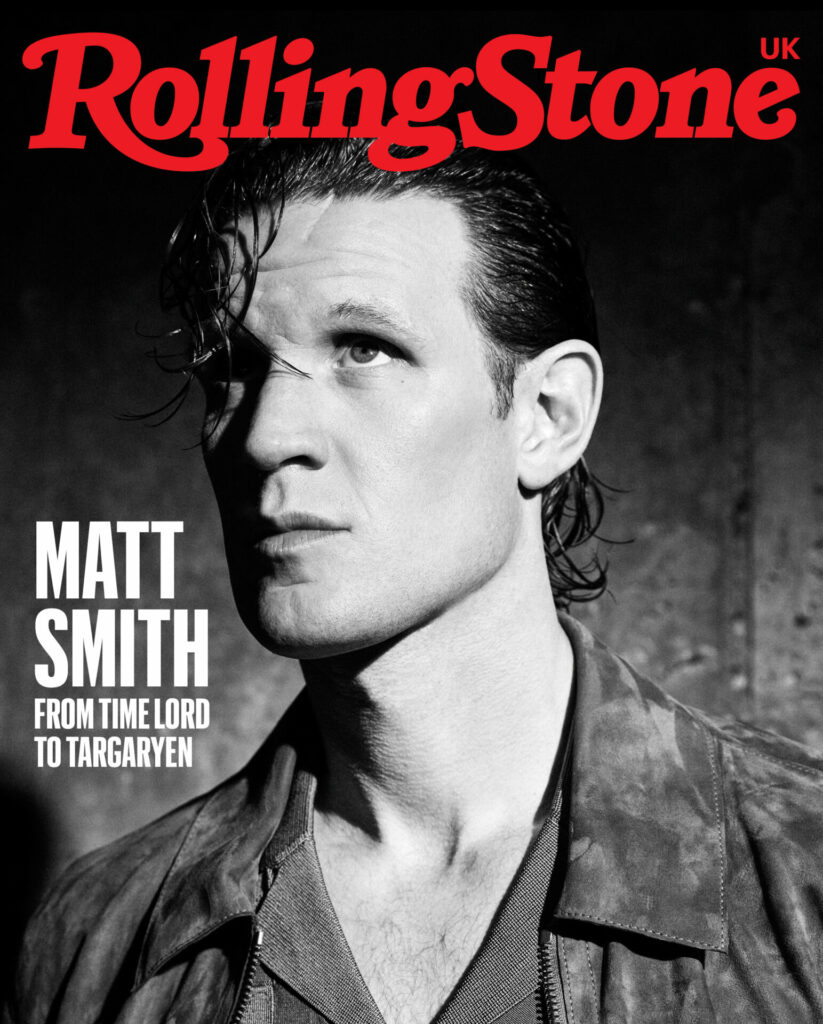Matt Smith: from Time Lord to Targaryen prince
With a career that’s taken him from ‘Doctor Who’ to the new ‘Game of Thrones’ prequel ’House of the Dragon’, Matt Smith is one of Britain’s most in-demand actors. But has anyone told him that?
By Paul Kirkley
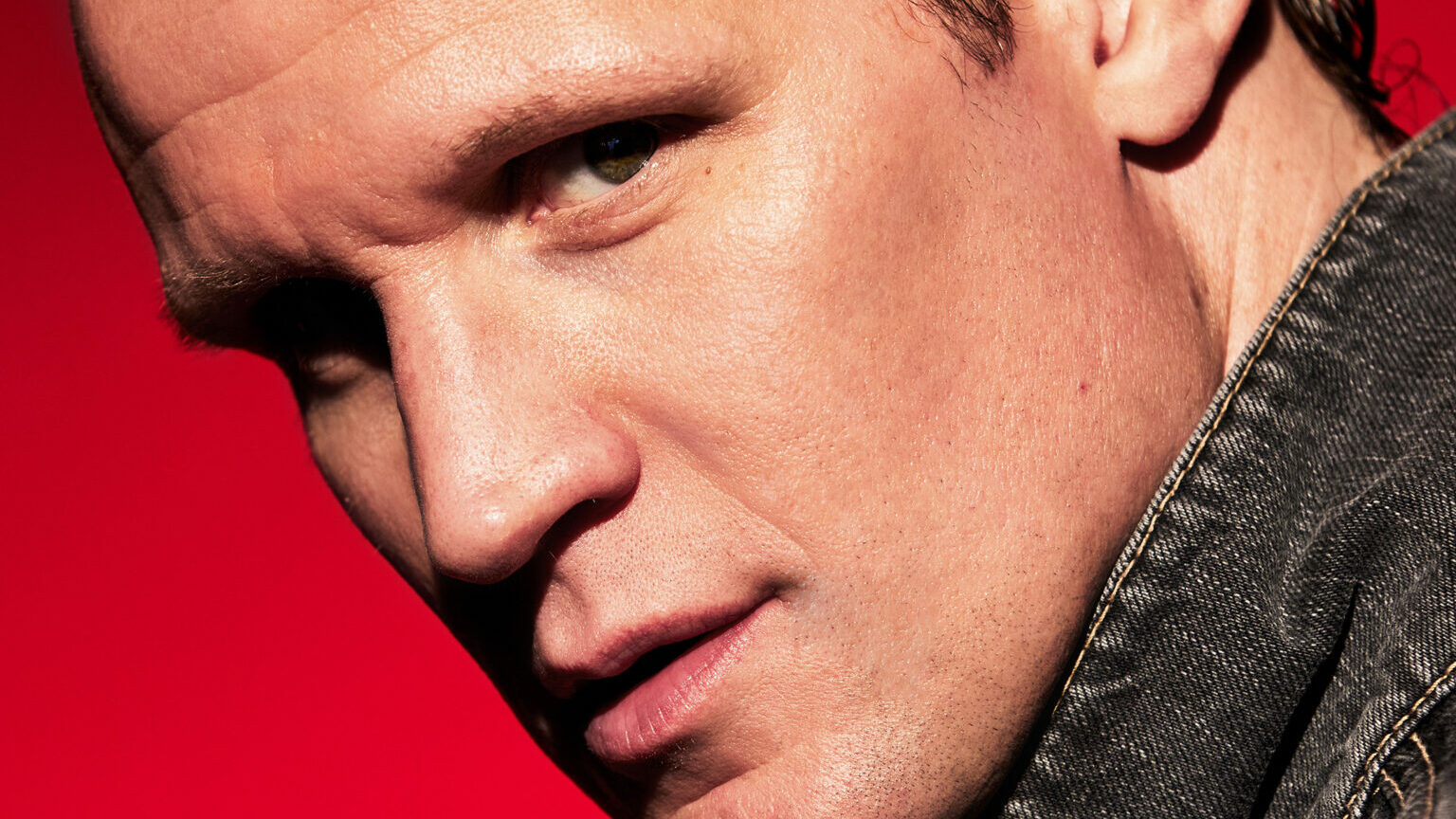
Matt Smith doesn’t use Google Maps. He likes the “adventure”, he says, of finding his own way around. Hence our current quest, on a muggy summer’s afternoon in London, to find the nearest pub — a journey he appears to be undertaking as much in hope as expectation.
But then, travelling hopefully is very much the Matt Smith way. By any metric, the 39-year-old is one of Britain’s most successful actors: no other former Doctor Who, for example, has made a bigger splash in Hollywood, to say nothing of his Emmy-nominated turn as a young Duke of Edinburgh in Netflix’s The Crown.
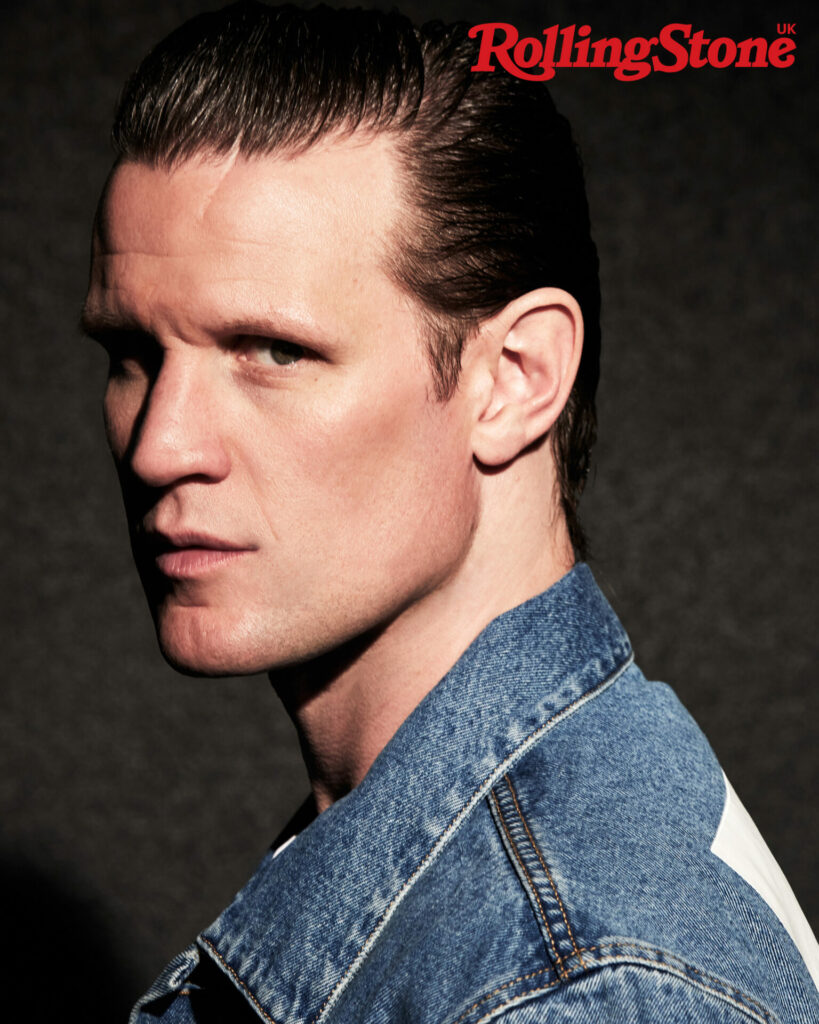
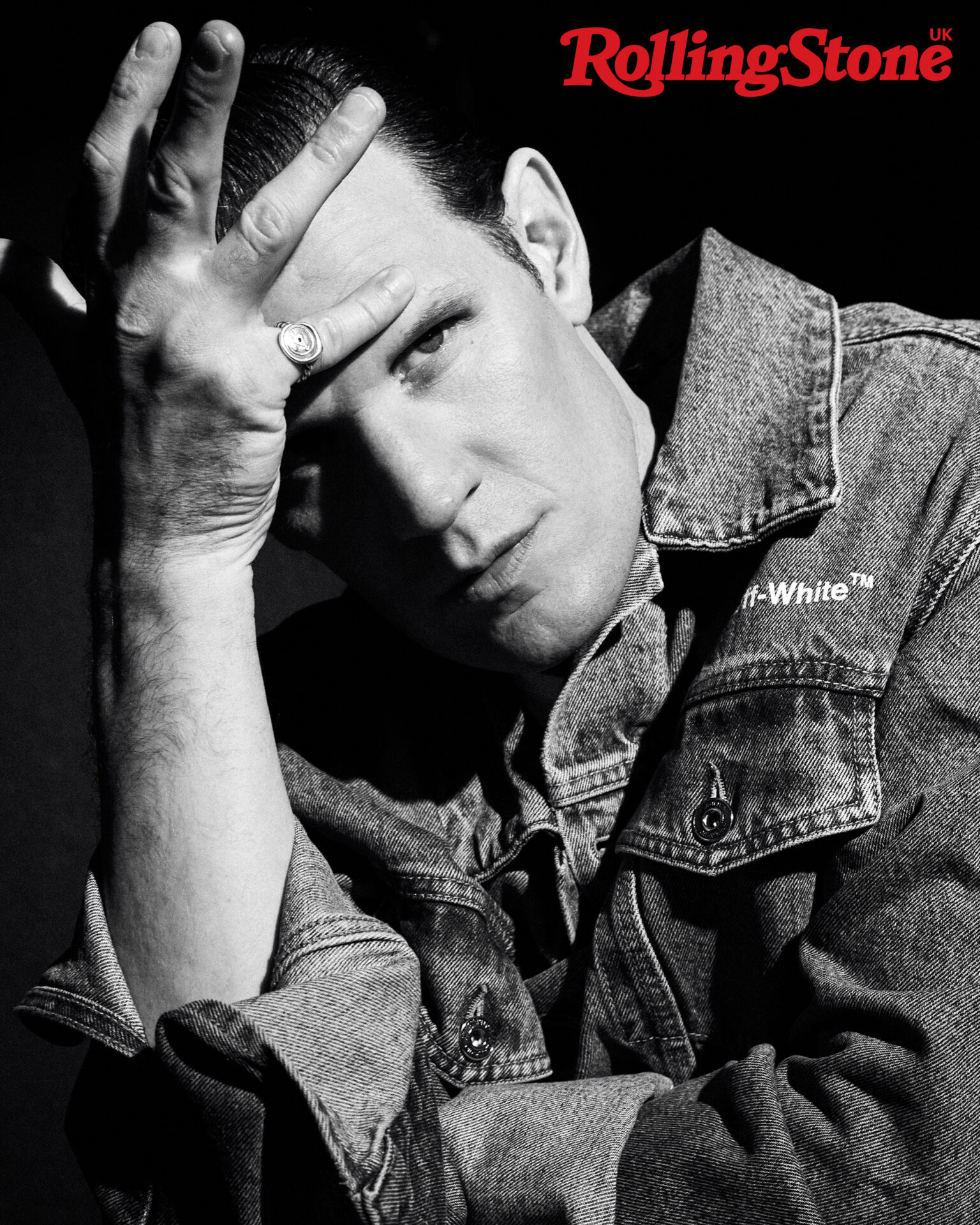
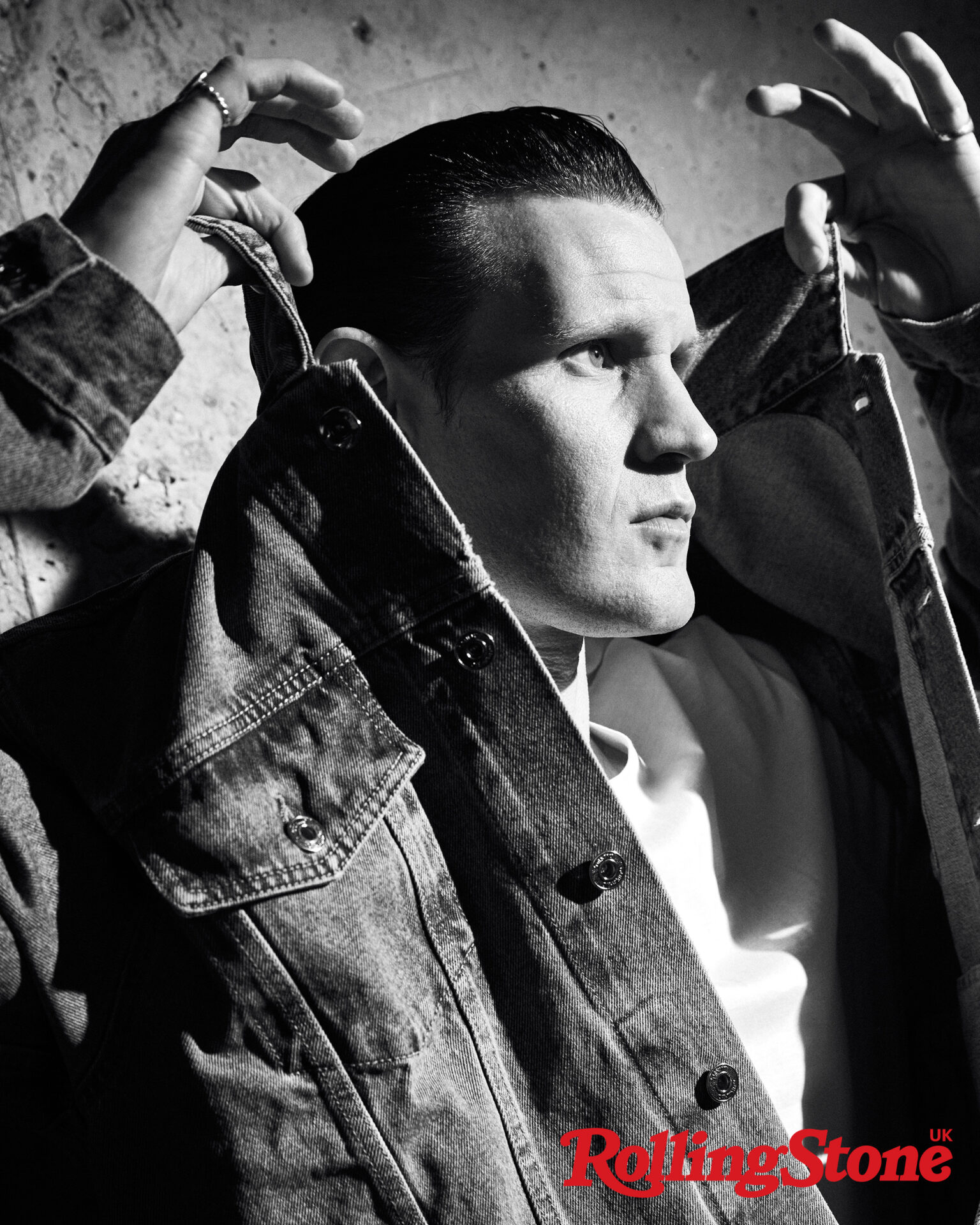
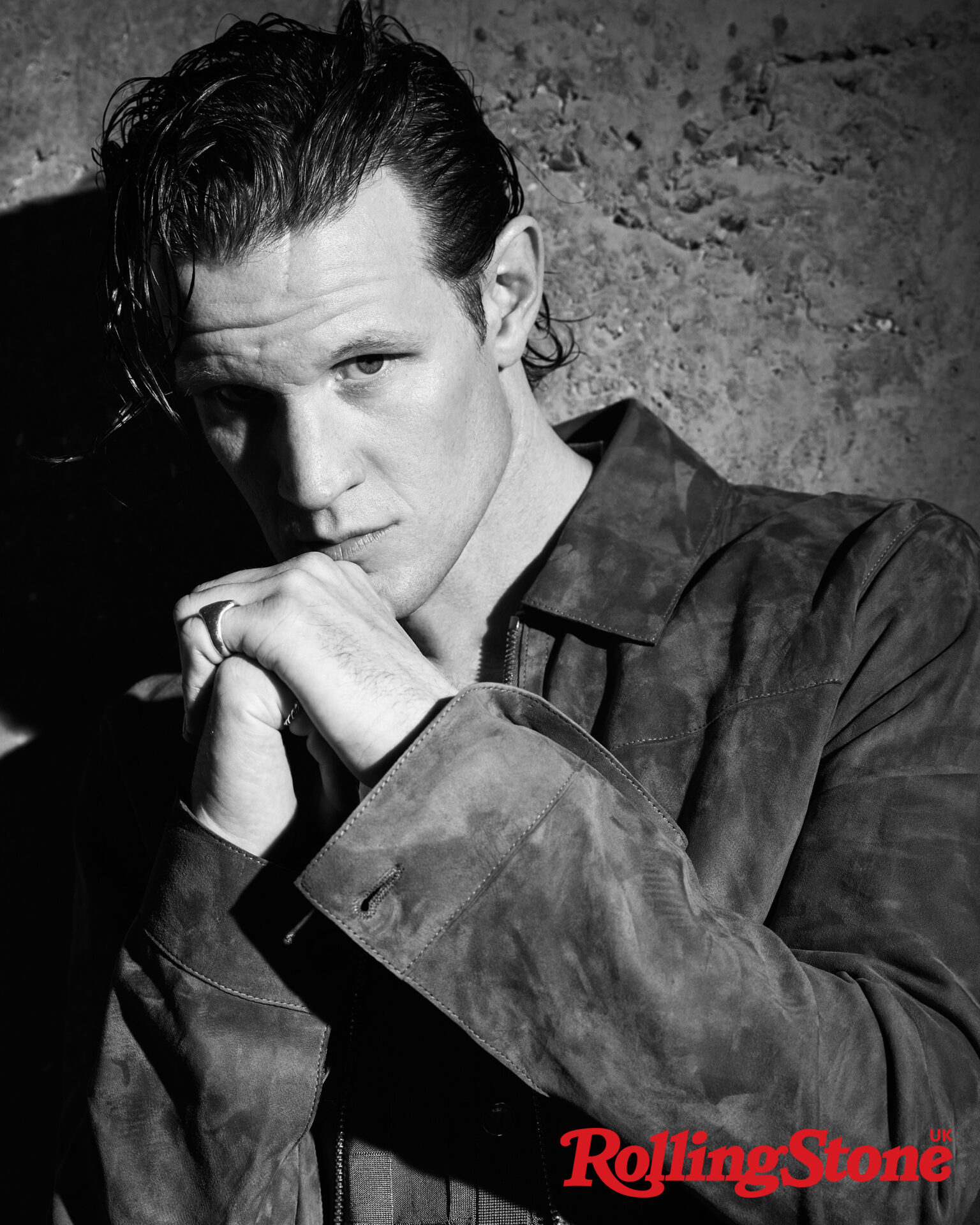
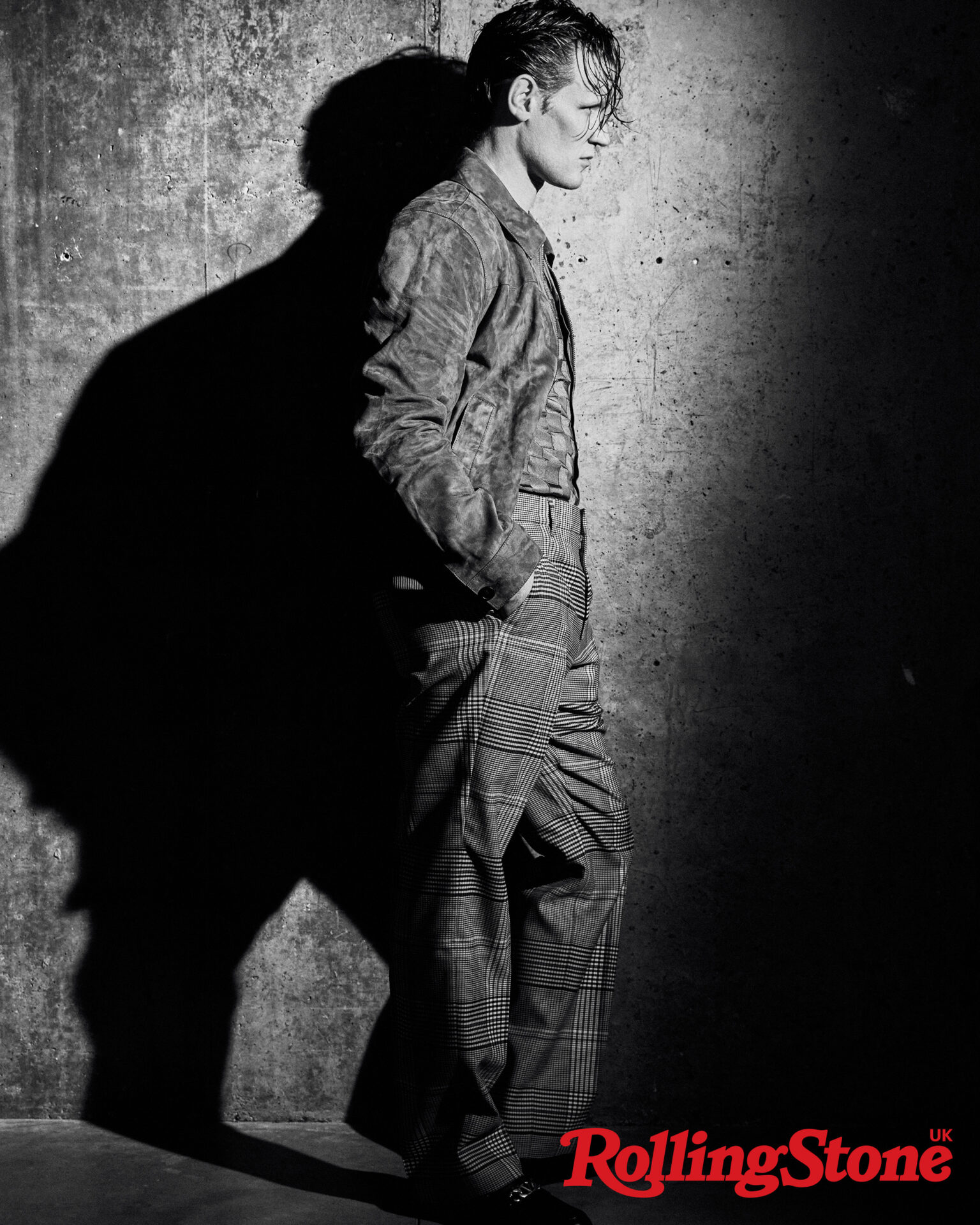
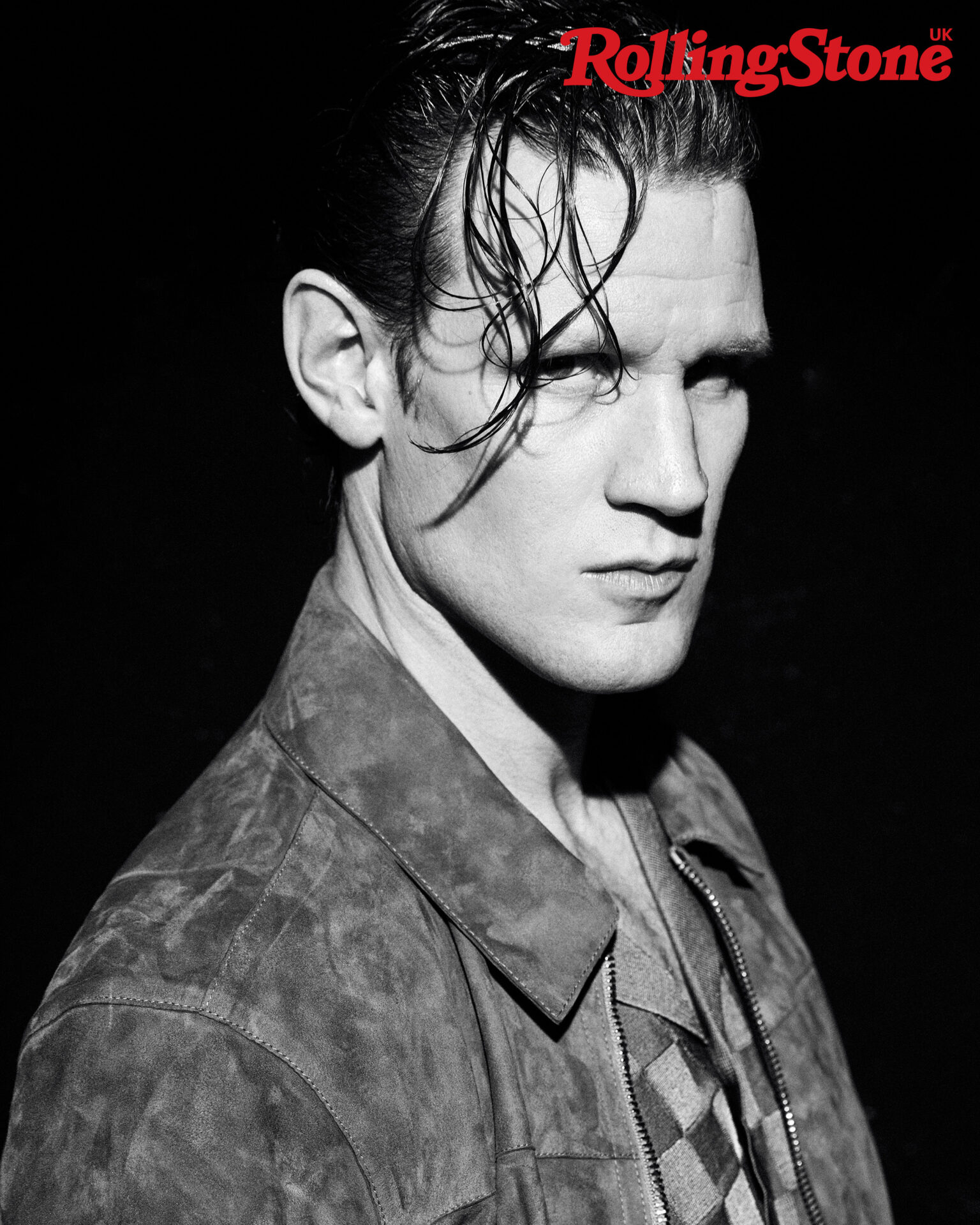
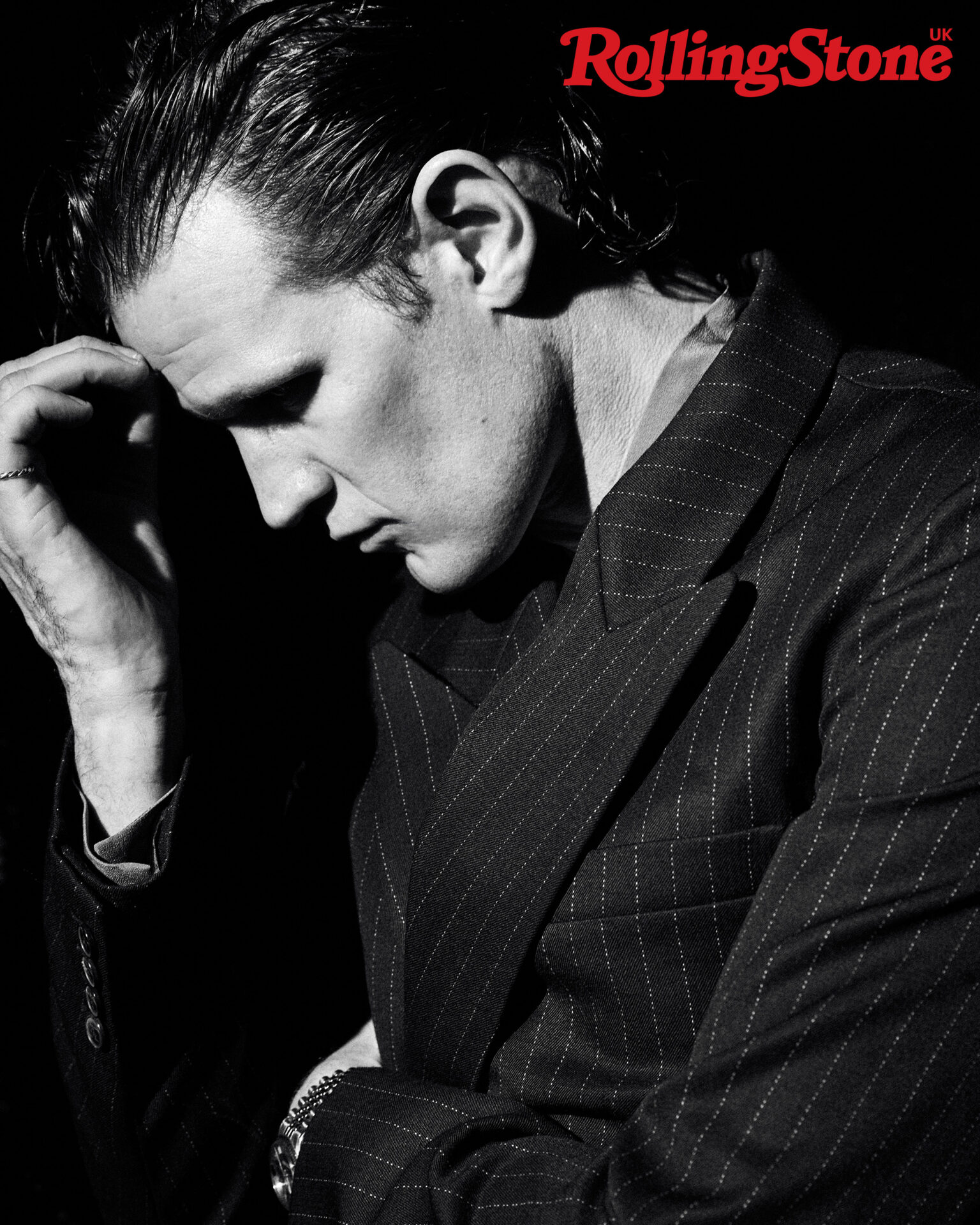
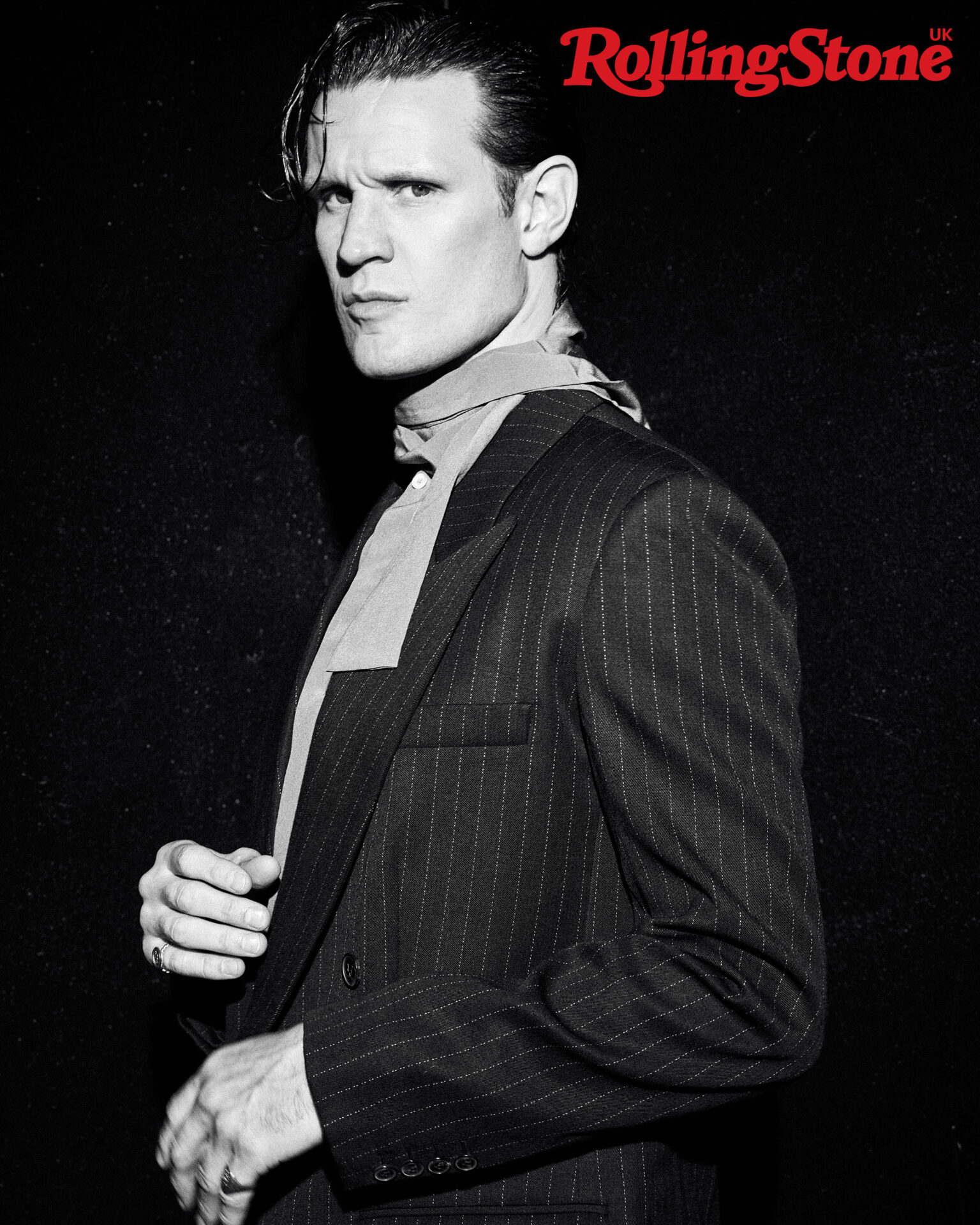
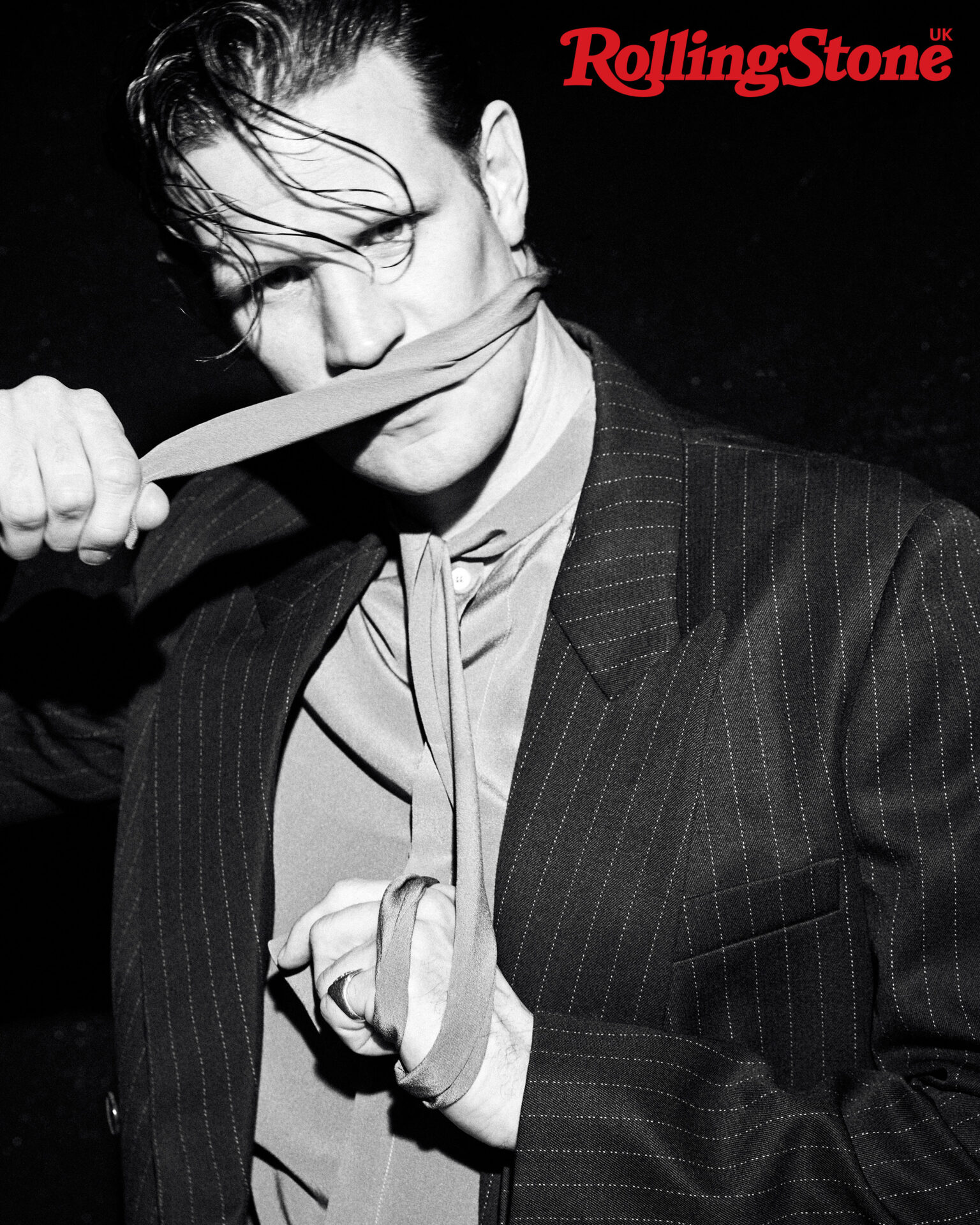
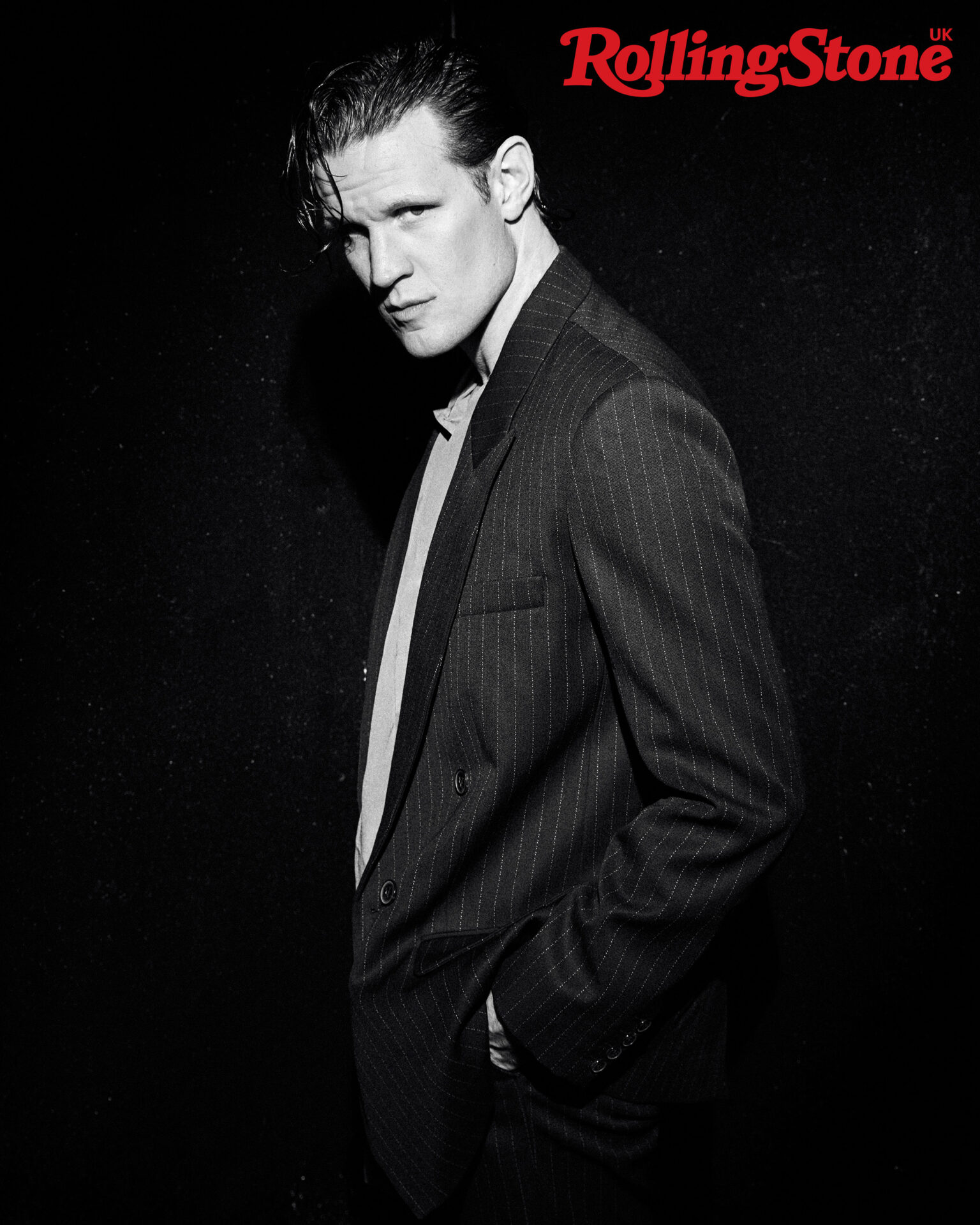
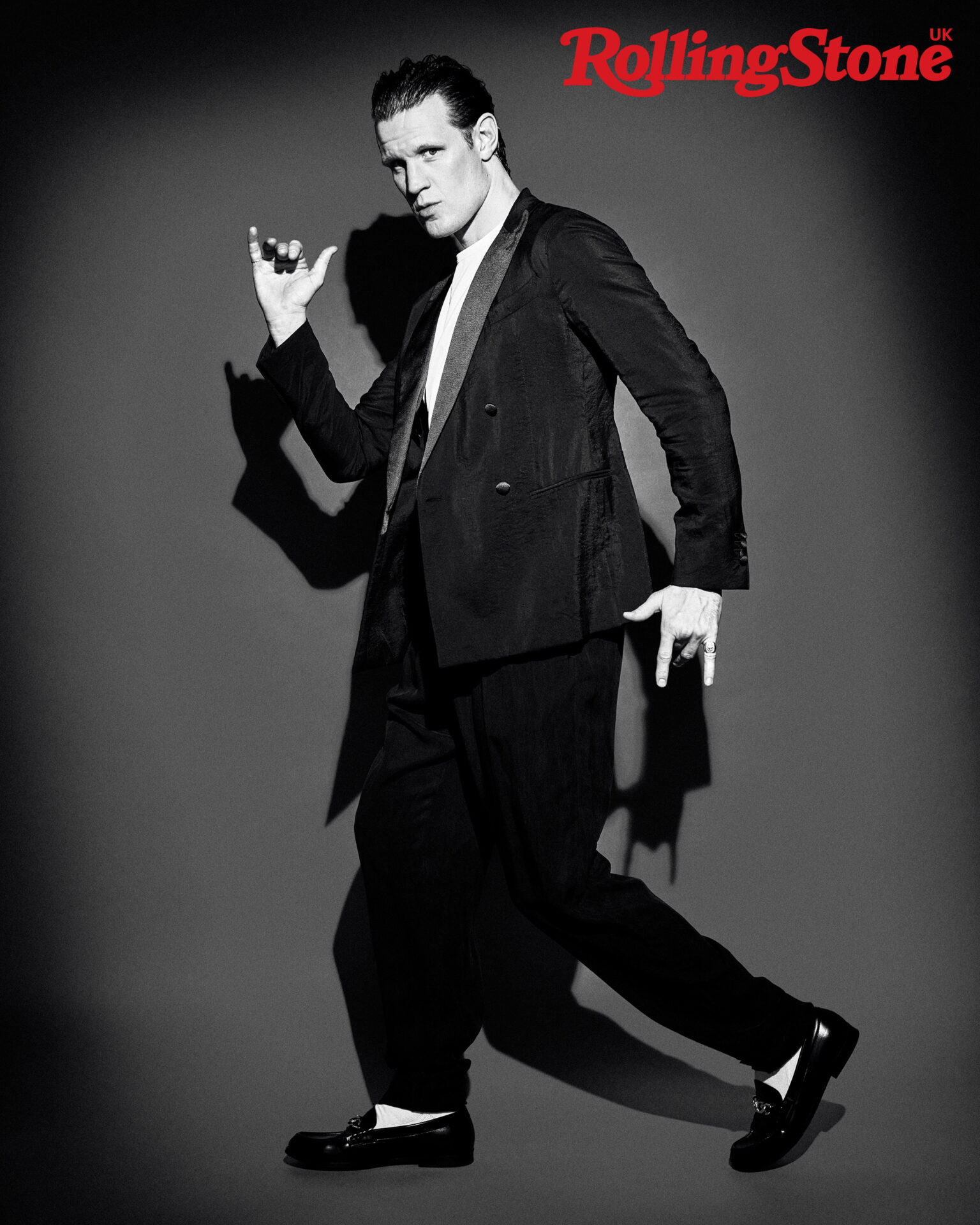
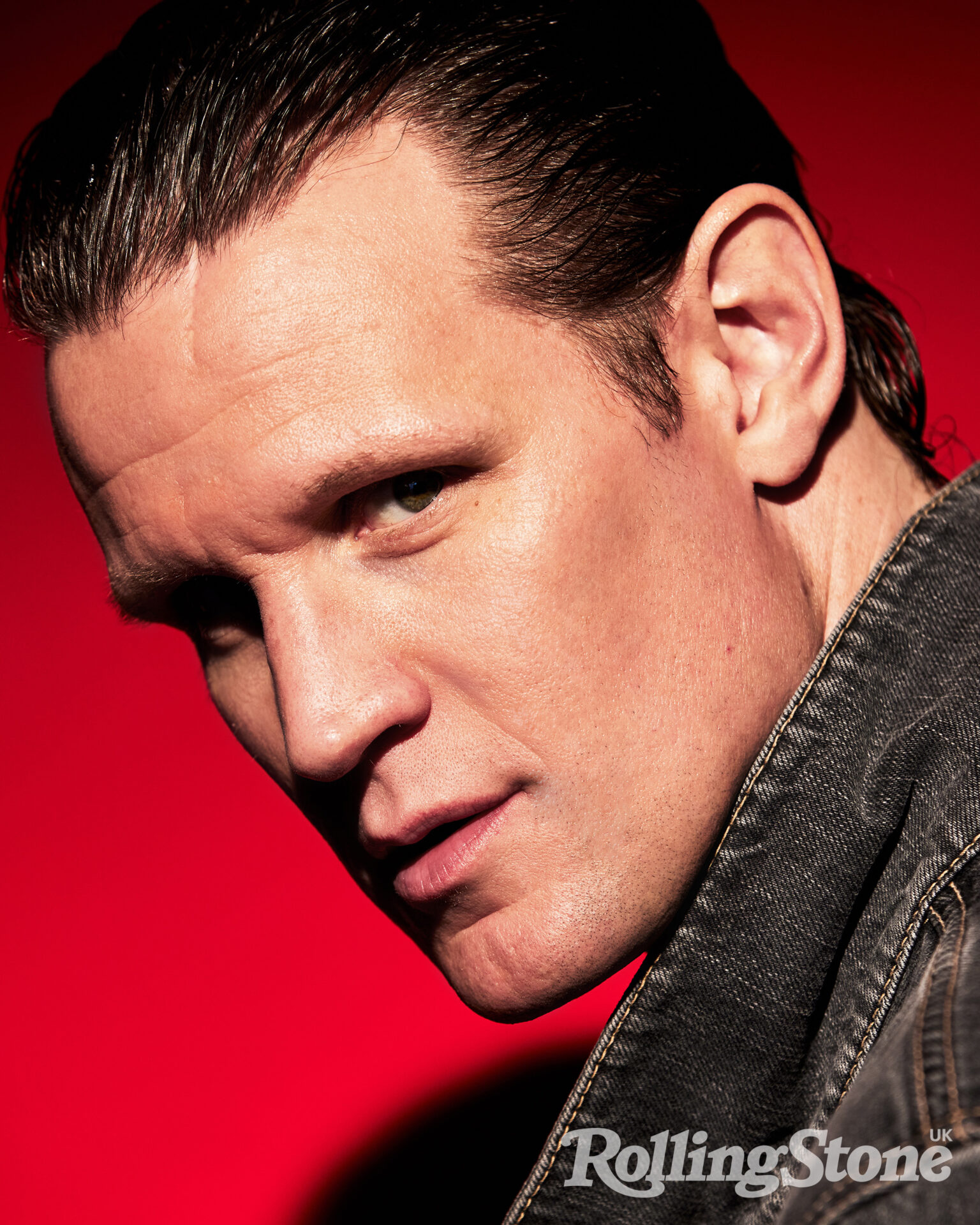
But not only does Smith not act like a movie star — there’s no PR minder tagging along for the interview, and when his inbuilt radar does bring us to the pub, his hand’s straight in his pocket — he genuinely doesn’t seem to think he is one.
“It’s strange, as an actor,” he says, reflecting on the decade since he handed over his TARDIS key. “You’re sort of rolling the dice with every job, and it could go either way. So you know, it’s felt challenging. Has it been as good as some people’s trajectories and careers? Probably not. Is it as bad as some others? Probably not. Am I somewhere in the middle? Probably, yeah.”
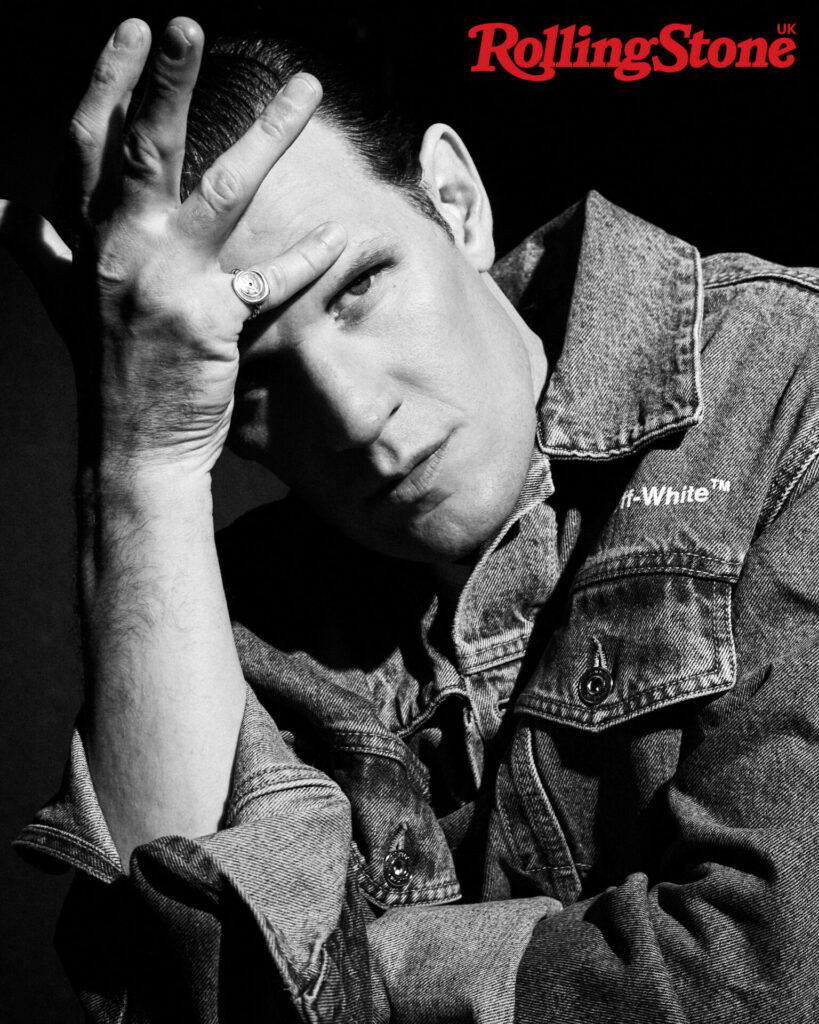
This modesty — which is slightly at odds with the rock-star poses he’s just spent the past few hours striking for Rolling Stone UK’s shoot, a task completed with lightning-fast efficiency and zero fuss — is a recurring feature during our conversation. At one point, he pushes back on the suggestion that Doctor Who made him an overnight superstar, saying: “I’m not sure that’s quite correct. I think you become an overnight…” He searches for the right word, before settling on “something.”
Even the show he’s here to talk up, HBO’s $200m Game of Thrones prequel House of the Dragon, is discussed with a certain caution. “I haven’t seen it yet — and often your experience of making it is different from your experience of watching it,” he observes. “But I hope it’s good. Obviously, you’re standing on the legacy of a show that had a big impact on people. And you’re never going to be able to recreate that. It’s a bit like being in a band: you’ve got to play the hits, but you’ve also got to hope the second album delivers something that moves the narrative forward.
“[Daemon is] sort of an outsider. He’s not black and white, there are shades of grey with him”
— Matt Smith
“It’s a great cast,” he adds, of an ensemble that includes such notable British talent as Paddy Considine, Rhys Ifans, Olivia Cooke and Steve Toussaint. “The characters are really, really interesting. And it’s based on George R.R. Martin’s book [Fire & Blood, 2018]. That’s one thing we’ve got going for us: we’re not just plucking fantasy out of thin air. It comes from the mind of George, who’s really clever, and has created a world that feels like it’s translatable.”
Has he read the book? “Not in its entirety,” he says.
It’s a big book. “Yeah,” he nods. “It’s a big fucking book.”
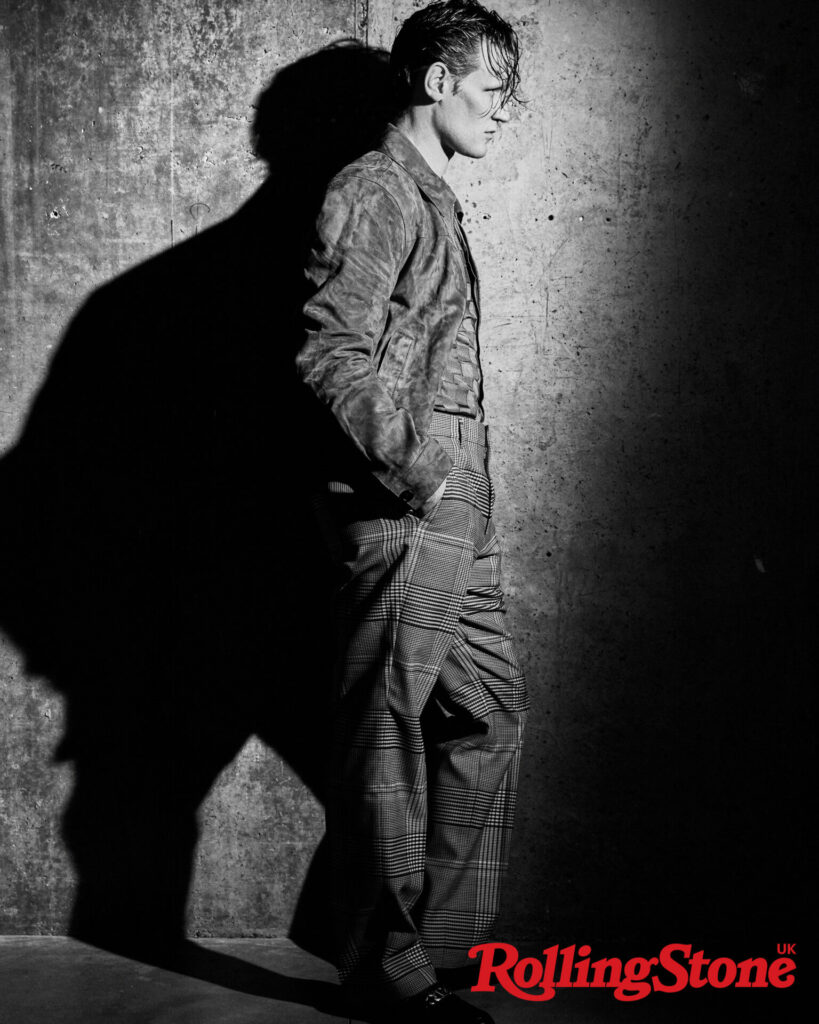
Set two centuries before Game of Thrones, the series chronicles the dramatic fall of the House Targaryen — the dynasty that has ruled over the Seven Kingdoms of Westeros for nearly 300 years (and would later produce Emilia Clarke’s Mother of Dragons, Daenerys, in Thrones). Smith plays Prince Daemon Targaryen, younger brother of Considine’s King Viserys, and heir presumptive to the Iron Throne. But Viserys’ firstborn child, Princess Rhaenyra (Emma D’Arcy), has ambitions to become the Seven Kingdoms’ first queen — a rupture with tradition that threatens to spark civil war across the realm.
“He’s sort of an outsider,” Smith says of Daemon. “He’s not black and white, there are shades of grey with him, which is what interested me about him. And his relationship with his brother is really interesting. It was a joy working with Paddy Considine, who I’ve admired for so long, and Rhys Ifans.”
Sporting the Targaryens’ signature blond mane was less of a joy. “It looks great but it’s a fucking pain in the arse,” says Smith of the platinum wig that was his constant companion during the 10-month shoot. “It took an hour and a quarter to put on every day. I was like, ‘Obviously the Targaryens are known for their blonde hair — but can’t we just give them some highlights?’”
Game of Thrones was renowned for its exotic locations, but while Smith did get to go to Spain and Portugal (“briefly”), he spent most of the shoot “in a shed in Leavesden. It could have been worse,” he shrugs. “At least it was near my house.”
Daemon is a fierce warrior and an accomplished dragonrider, which means Smith also gets his own scaly co-star. “My dragon’s called Caraxes. He’s a bit of an avatar of Daemon — he’s grumpy, sardonic, insular, volatile, chaotic. There’s a very strong connection between the dragon and the dragonrider.” It’s not all done with CGI, either: “There’s an actual dragon, and you sit on it and they move it around by remote control, while firing rain and all sorts of things at you.”
Does it ever feel like a strange way to make a living? “Every day,” he laughs. “That’s one of the glories of being an actor. It arrests you out of the mundane.”
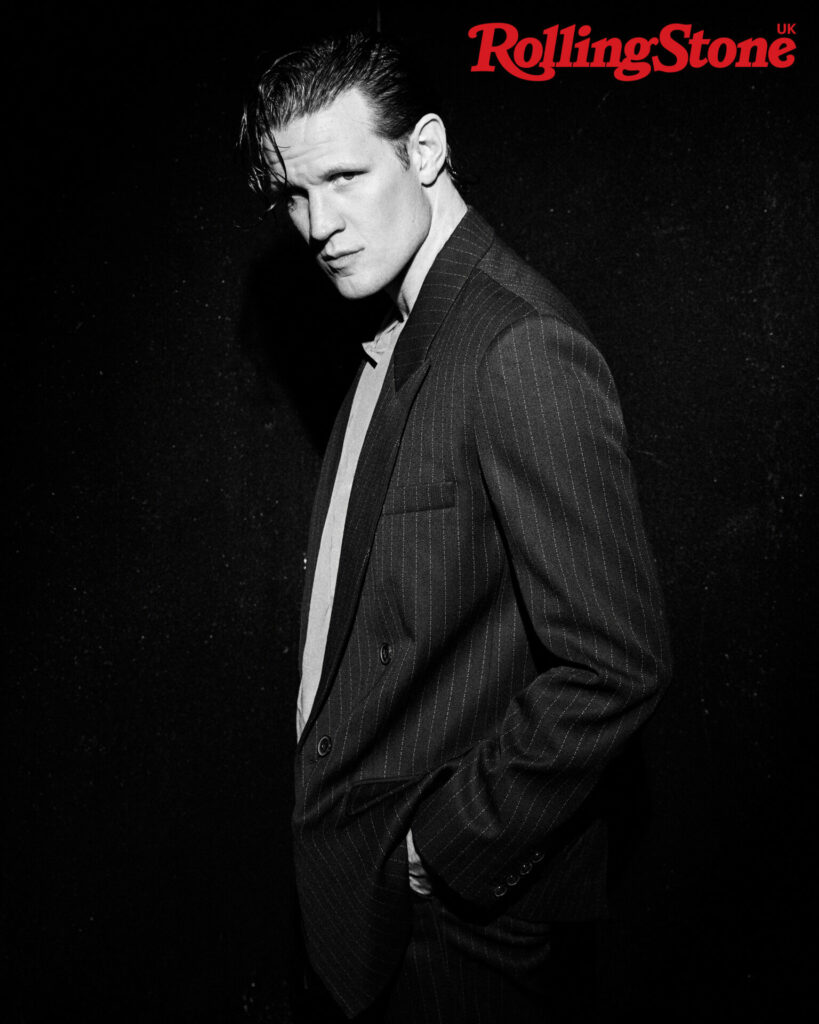
When Game of Thrones launched in 2011, Smith was off having adventures in space and time — but even with Doctor Who’s punishing schedule, he watched every episode. “I’ve always been a fan. It’s just good, isn’t it? I remember going to Comic Con for Doctor Who, and meeting George R.R. Martin on a boat. Game of Thrones hadn’t come out yet, and I remember all the cast being there, having no idea what a huge juggernaut it was about to become…”
As a fan, what did he make of Thrones’ controversial ending? “I think you’re always going to disappoint some people,” he considers. “Ultimately, the body of work they produced stands up. Was it a perfect ending? It’s a matter of opinion. It didn’t bother me, I liked it.”
The show also raised eyebrows with its sexually explicit content (Stewart Lee famously dubbed it ‘Peter Stringfellow’s Lord of the Rings’) and Emilia Clarke has since spoken of her discomfort at some of the nude scenes. Is it, perhaps, already a product of a different time — and should we expect less of that sort of thing in House of the Dragon? Apparently not. “You do find yourself asking, ‘Do we need another sex scene?’” says Smith. “And they’re like, ‘Yeah, we do.’ I guess you have to ask yourself: ‘What are you doing? Are you representing the books, or are you diluting the books to represent the time [we’re living in]?’ And I actually think it’s your job to represent the books truthfully and honestly, as they were written.”
So Daemon has his share of bedchamber scenes is what you’re saying? “Yeah — slightly too much, if you ask me,” he laughs.
“My dragon’s called Caraxes. He’s a bit of an avatar of Daemon — he’s grumpy, sardonic, insular, volatile, chaotic. There’s a very strong connection between the dragon and the dragonrider”
— Matt Smith
In person, Smith is self-effacing, generous, endlessly curious company, asking almost as many questions as he answers. This is the first interview he’s ever done over a pint, he says, but you suspect it won’t be the last. (He’s going easy, though, because he’s just bought a new place, and has got some shelves to put up when we’re done.)
He’s a curious mix of personalities: half blokeish lad next door, half exotic, otherworldly creature, with a passion for footie and poetry in equal measure. As a teenager, he was a promising football talent, signing as a youth player with his local club, Northampton Town, then Nottingham Forest and Leicester City. When a back injury put paid to that dream, a teacher who’d spotted his acting potential made repeated attempts to involve him in plays and drama festivals, which Smith would inevitably not show up for. Eventually, though, he was persuaded to apply for the National Youth Theatre, which he followed up with a drama and creative writing degree in Norwich.
With a handful of stage and TV roles under his belt — including the political drama Party Animals, and a raunchy liaison with Billie Piper in Secret Diary of a Call Girl — Smith was just 26 when he was announced as the 11th Doctor in 2009. (He still holds the record as the youngest Time Lord: Peter Davison and the incoming Ncuti Gatwa were both 29 when cast.)
Was he scared? Very. “I was turning up to work going, ‘Fuck, I can’t do this,’” he recalls. “I used to phone my dad, going ‘I can’t do this.’ And he’d be like, ‘Come on, get your head down, you can.’ The show is such a jewel in the BBC crown, and has such global appeal… if it doesn’t work, and you’re at the centre of it, then there’s nowhere to hide. I remember walking down the street around that time and someone shouting, ‘Don’t break Doctor Who!’”
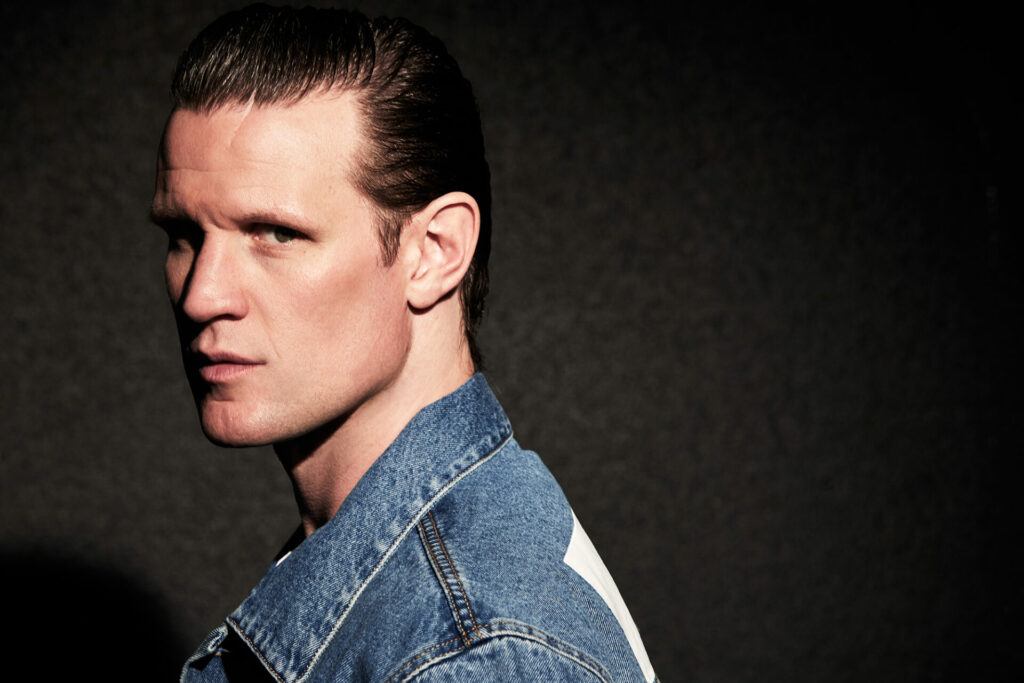
He didn’t break it. In fact, he was a natural: old yet young, alien yet human, serious yet silly, Smith arguably captured the enigmatic, contradictory nature of the ageless Doctor better than any actor before or since. With his preppy, professorial bow tie and tweeds, he walked a fine line between action hero and bookish nerd: a Lord of Time capable of bending armies to his will one minute, a clueless naïf barely in control of his own limbs the next. (To date, he remains the only actor to have been nominated for a BAFTA in the role.)
When I tell him all this, he seems genuinely delighted, reaching over for a high-five. “You never tire of hearing that as a Doctor,” he says. “It’s a wonderful club to be part of, because… you know, Doctor Who is just fucking brilliant, isn’t it?”
He’s excited to see what Ncuti Gatwa does with the role (“he’s going to be fabulous”), and by the return of Russell T Davies, who’d left before Smith’s time, as showrunner. He’s also pleased — but not massively surprised (“Russell’s back, it makes sense”) — to see his predecessor David Tennant slipping back into his skinny spaceman suit for a victory lap around the TARDIS. “What a Doctor, what an actor, what a bloke. Arguably David is…” he seems about to say ‘the one’ but, perhaps mindful of the esprit de corps among his fellow Time Lords, opts for “a totally seminal Doctor.”
Did that add to the pressure, when he had to follow him into the show? “Yeah. Can you imagine? Because he was as popular as it gets, really. But he was so kind to me, David, in the transition. He’s just a good bloke.”
“I was turning up to work [on Doctor Who] going, ‘F**k, I can’t do this.’ I used to phone my dad, going ‘I can’t do this.’ And he’d be like, ‘Come on, get your head down, you can’”
— Matt Smith
Tennant’s return raises the obvious question: would Smith ever go back? “Maybe, if it was the right script,” he muses. “I mean, I don’t know if I’ve got too old now. It would have to be really right.”
There’s an argument to be made for the Who Class of 2010-13 — Smith, Karen Gillan (Amy Pond) and later Jenna Coleman (Clara Oswald) — being the most successful in the show’s long history, in terms of their subsequent careers. “I think that’s true of Karen,” he says, diffident as ever, of Gillan’s ascent to Hollywood supremacy in the likes of Jumanji and a slate of Marvel movies. “She’s taking over the world; she’s a bona-fide movie star. I love her. I was at her wedding recently, and she’s just the most impressive woman — laser sharp, super bright, really funny. I just feel very proud of her.”
As to whether his own post-Who career has met — or exceeded, or fallen short of — his hopes when he left the show, he says he can’t really remember what his expectations were. You’ve done more Hollywood movies than probably any other Doctor, I point out. “I mean… yeah, I dunno,” he shrugs. “Maybe, maybe not. I’ve tried to do challenging shit, things that are slightly out of my wheelhouse. For better or worse.”
The Crown was definitely ‘for better’. As the young Prince Philip, he was a rascally foil to Claire Foy’s cut-glass Queen Elizabeth, earning a Primetime Emmy nomination for his troubles.
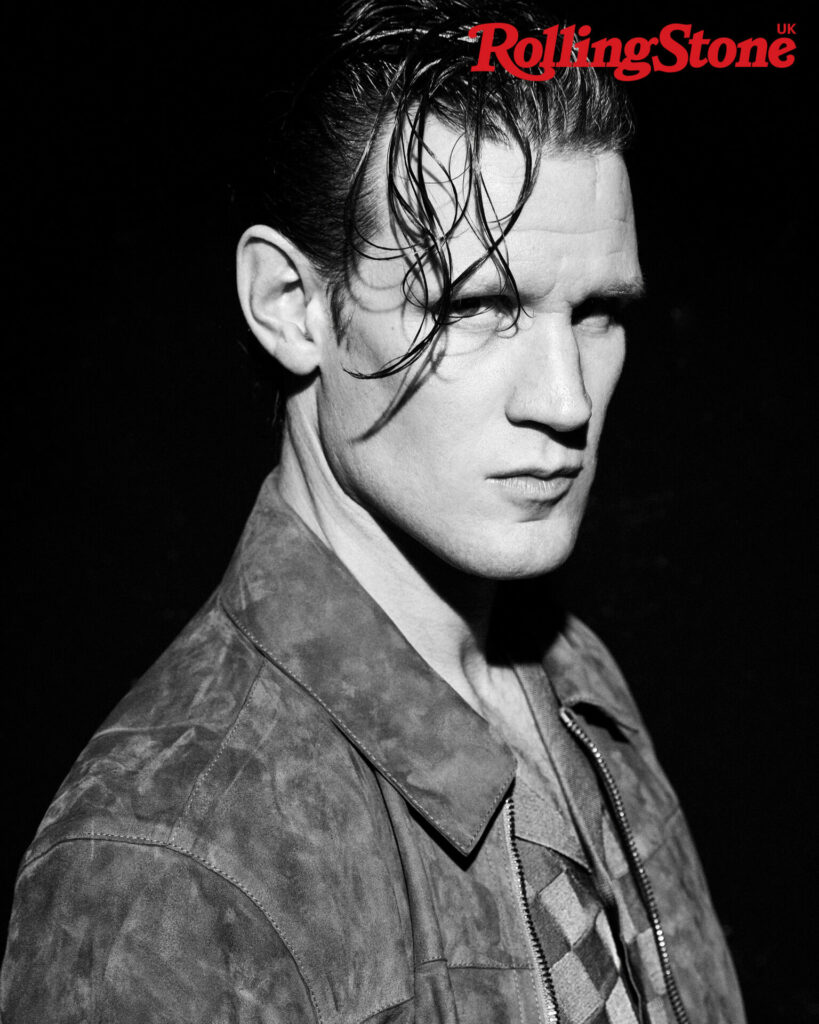
He grew fond of the old boy while playing him, he says. Was he sad when he died? “I was, yeah. When I got the part, my granddad, who was very anti-royal, said, ‘You’re not playing that bloody berk, are you?’ And I’d always had a similar antipathy towards them, I suppose. But there was a courage and a defiance and a humour to Philip — which got him into trouble, and was at times ill-judged — but at least he was himself. And God, isn’t that refreshing, in this day and age? That he was himself, not some polished version of something.”
Other successes on his balance sheet include his well-received turn as a sleazy talent manager in Edgar Wright’s stylish horror thriller Last Night in Soho, and passion project forays into American arthouse cinema like Ryan Gosling’s Lost River. On stage, meanwhile, he starred as Patrick Bateman in the stage musical adaptation of Bret Easton Ellis’ American Psycho, and reunited with Claire Foy for intimate two-hander Lungs at the Old Vic.
That dice he mentioned earlier hasn’t always rolled his way, though: Terminator Genisys, in which he made his Hollywood blockbuster debut alongside Arnold Schwarzenegger and Emilia Clarke (of the House Targaryen) proved an expensive misfire, while Morbius — his recent sortie into the on-screen superhero genre — is the flop that launched a million smirking memes. Though Smith, as the main antagonist — a vampire investment banker — has once again emerged relatively unscathed from the wreckage, common consent being he’s the best thing in it.
“Yeah, it was thrown under the bus,” he smiles. “But you just have to roll with it. What else are you gonna do? It’s a film, at the end of the day, we’re not saving lives. For whatever reason, it didn’t quite work out and… It is what it is.”
For an actor who made his name saving the universe every Saturday, Smith has played a lot of villains, bringing a sly, cat-like presence that’s strikingly at odds with his matey real-life persona. Maybe it’s something to do with that slightly alien, unknowable quality: on the brink of his 40s, he’s still boyishly good-looking, but not in a boring way (with his square jaw and swoosh of hair, he was once described by his Doctor Who boss Steven Moffat as looking like “a cartoon of a handsome man”).
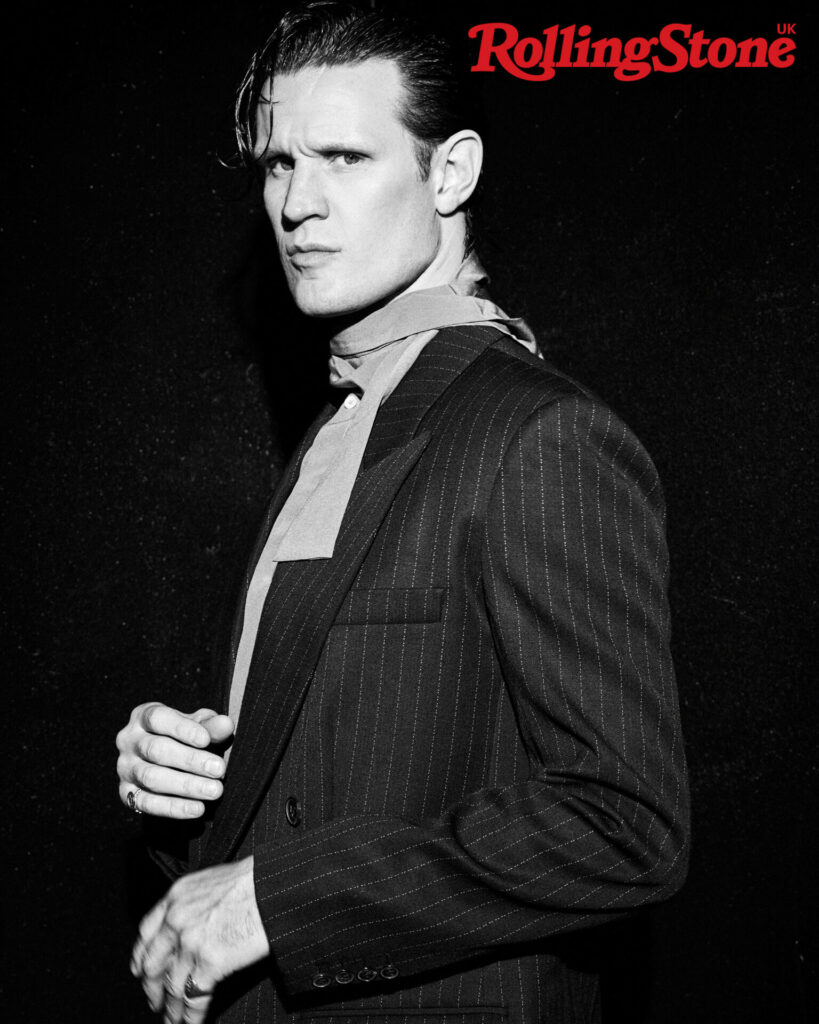
He’s also been one half of some very beautiful couples, dating model Daisy Lowe before embarking on a five-year romance with Lily James. Today, he politely declines to discuss relationships, past or present, but says he’d “definitely like a family one day”. I ask if his job, and the scrutiny that comes with it, makes that side of life more difficult. “I don’t know, because… that’s what I know,” he says. “It’s just my life.
“I’ve always had quite a localised group of friends,” he adds, having made a start, after some deliberation, on a second pint (“There goes the DIY — I’ve fucked it, haven’t I?”). His two best friends he’s known all his life. “We grew up in the same street. All of my mates are from back home — I’ve got, like, 10 or 15 proper boys from Northampton.”
What do they make of his lifestyle — is it a bit of an Entourage situation? “Nah, they couldn’t give a fuck.” Really? “Really — they literally couldn’t give a fuck. They’re my mates, and I’m proud of them. Some of them are bricklayers, some of them work in recruitment, some of them work for Mothercare. And to them, I’m just Smithy, the kid they took the piss out of for having big ears.”
He still hangs out with his family (including sister Laura, a dancer who appeared in that Eric Prydz’ ‘Call on Me’ video) as often as he can; the week before our meeting, he was at Wimbledon with his mum, Lynne, who’s still his biggest fan, as anyone who’s seen her Twitter account will attest. “She’s always like, ‘Can I tweet this?’ And I’m like, ‘Please, God, no, enough!’,” he laughs. “But I’m lucky to have her. And that’s what you want for your mum, isn’t it? To be proud.”
“[David Tennant] was as popular as it gets, really. But he was so kind to me, David, in the transition. He’s just a good bloke.”
— Matt Smith
She’s got plenty to be proud of, of course. But, in his heart, would Smith — a lifelong Blackburn Rovers fan — have swapped it all to be a professional footballer?
“It depends on the level of football we’re talking about,” he considers. “If it’s Thierry Henry, then maybe. Like I said, the dice can roll two ways. If I’d been a footballer, my life would’ve been completely different. I mean, I wouldn’t be sat here having two pints before trying to put up a shelf.”
That said, his playing career would be long over by now. How does he feel about turning 40 in October? “All right, actually,” he says. “I’m embracing middle age.”
Is it an opportunity to pause and reflect on the four decades of Matthew Robert Smith so far? And if so, what does he see? “Oh God, I dunno,” he says, brows knitting. “I feel fortunate I’ve had a good family, good friends. I feel fortunate to do what I do. It could have been worse, couldn’t it?”
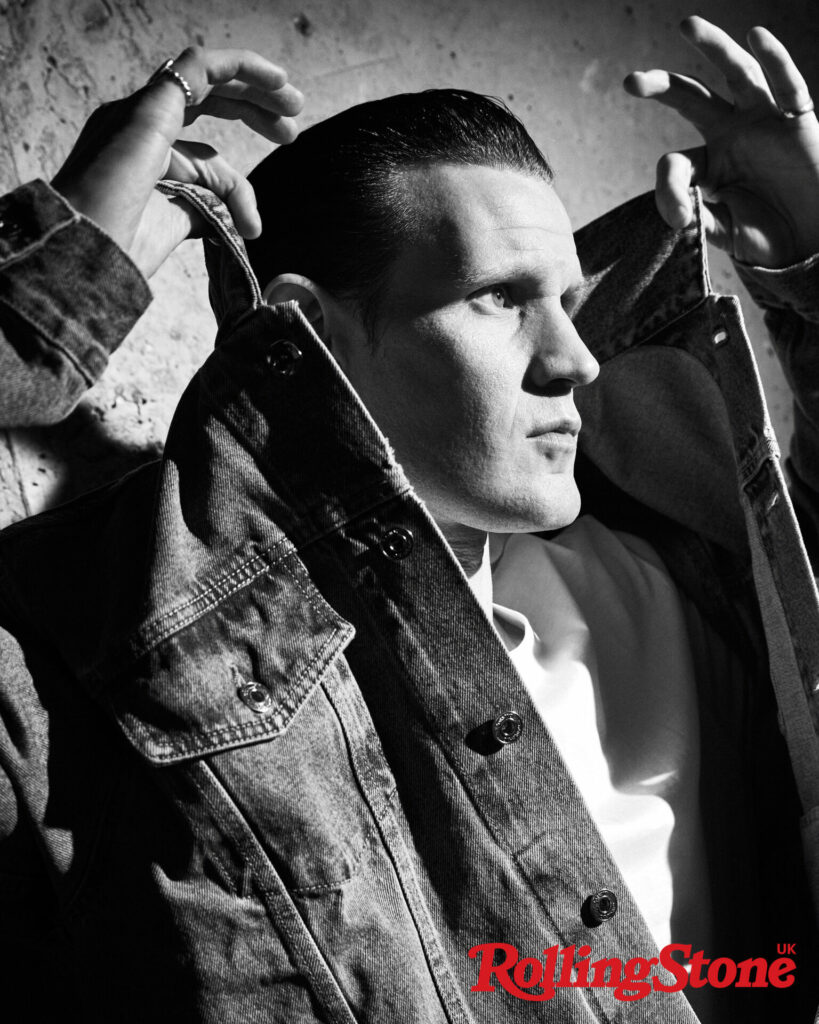
Is he — huge word, this — happy? “I mean, you know… what’s happy?” he says. “I’m happy when Blackburn win. I’m happy having a pint with my mates. I’m happy going to Wimbledon with my mum. Yeah, I’m happy. But sometimes life, you know, fucking…” He mimes a forceful tennis backhand. “That’s just how it goes, isn’t it?”
As for the future, if Prince Daemon Targaryen survives the first season of House of the Dragon (“with a good wind, you never know,” he teases), then he may well be spending a lot more time in Westeros-Leavesden. And beyond that? He’s just made a film with Ralph Fiennes — The Forgiven, also starring Jessica Chastain, out in September — and he’d be more than satisfied with a career like his, he says. “I’d also like to do some Shakespeare, which I’ve never done. I didn’t want to put my friends through three hours of that.
“For me, it’s not about being successful,” he insists. “It’s about being actively challenged and engaged. I mean, what are you gonna do — stay in bed all day and read the papers? You’ve got to get up and do it. I played a lot of sport when I was younger, and it doesn’t leave you, that idea you’ve got to keep going, keep improving, keep getting better. And I would hope that, in my 40s, I’ll become a better actor than I was in my 30s. I’ve got to,” he says, draining his glass before heading off to almost certainly ignore those shelves. “Otherwise, what’s the point?”
House of the Dragon premieres on Sky Atlantic/NOW TV (UK) and HBO (US) on 22 August
Photography: Bartek Szmigulski
Styling: Joseph Kocharian
Fashion Assistant: Sacha Dance
Hair and makeup: Petra Sellge at The Wall Group using Boy de CHANEL and No.1 de CHANEL Essence Lotion and Body Serum-in-Mist
Location: Lock Studios
